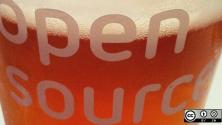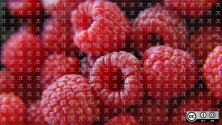The Raspberry Pi is a small, single-board computer originally intended for teaching and learning programming and computer science. But today it's so much more. It is affordable, low-energy computing power that people can use for all kinds of things—from home entertainment over server applications to Internet of Things (IoT) projects.
There are so many resources on the topic and so many different projects you can do, it's hard to know where to begin. Following are some resources that will help you get started with the Raspberry Pi. Have fun browsing through it, but don't stop here. By looking left and right you will find a lot to discover and get deeper into the rabbit hole of the Raspberry Pi wonderland.
Books
There are many books available in different languages about the Raspberry Pi. These two will help you start—then dive deep—into Raspberry Pi topics.
Raspberry Pi Cookbook: Software and Hardware Problems and Solutions by Simon Monk
Simon Monk is a software engineer and was a hobbyist maker for years. He was first attracted to the Arduino as an easy-to-use board for electronics development and later published a book about it. Later, he moved on to the Raspberry Pi and wrote Raspberry Pi Cookbook: Software and Hardware Problems and Solutions. In the book, you can find a lot of best practices for Raspberry Pi projects and solutions for all kinds of challenges you may face.
Programming the Raspberry Pi: Getting Started with Python by Simon Monk
Python has evolved as the go-to programming language for getting started with Raspberry Pi projects, as it is easy to learn and use, even if you don't have any programming experience. Also, a lot of its libraries help you focus on what makes your project special instead of implementing protocols to communicate with your sensors again and again. Monk wrote two chapters about Python programming in the Raspberry Pi Cookbook, but Programming the Raspberry Pi: Getting Started with Python is a more thorough quickstart. It introduces you to Python and shows you some projects you can create with it on the Raspberry Pi.
Online course
There are many online courses and tutorials new Raspberry Pi users can choose from, including this introductory class.
Raspberry Pi Class
Instructables' free Raspberry Pi Class online course offers you an all-around introduction to the Raspberry Pi. It starts with Raspberry Pi and Linux operating basics, then gets into Python programming and GPIO communication. This makes it a good top-to-bottom Raspberry Pi guide if you are new to the topic and want to get started quickly.
Websites
The web is rife with excellent information about Raspberry Pi, but these four sites should be on the top of any new user's list.
RaspberryPi.org
The official Raspberry Pi website is one of the best places to get started. Many articles about specific projects link to the site for the basics like installing Raspbian onto the Raspberry Pi. (This is what I tend to do, instead of repeating the instructions in every how-to.) You can also find sample projects and courses on teaching tech topics to students.
Opensource.com
On Opensource.com, you can find a number of different Raspberry Pi project how-to's, getting started guides, success stories, updates, and more. Take a look at the Raspberry Pi topic page to find out what people are doing with Raspberry Pi.
Instructables and Hackaday
Do you want to build your own retro arcade gaming console? Or for your mirror to display weather information, the time, and the first event on the day's calendar? Are you looking to create a word clock or maybe a photo booth for a party? Chances are good that you will find instructions on how to do all of this (and more!) with a Raspberry Pi on sites like Instructables and Hackaday. If you're not sure if you should get a Raspberry Pi, browse these sites, and you'll find plenty of reasons to buy one.
What are your favorite Raspberry Pi resources? Please share them in the comments!







Comments are closed.